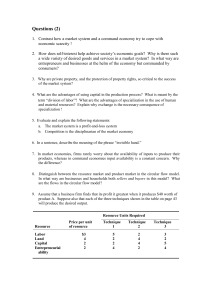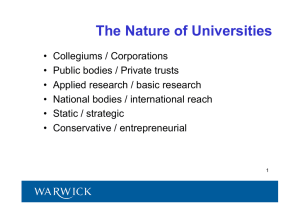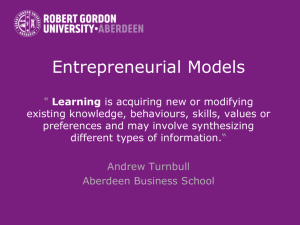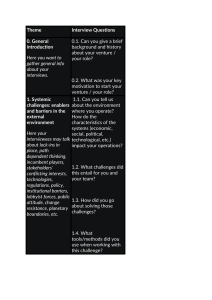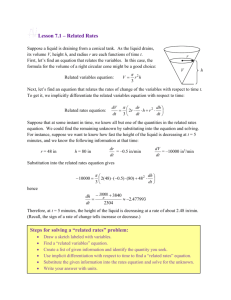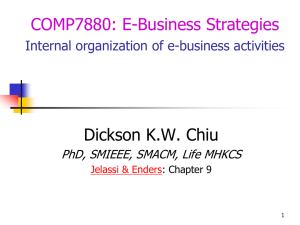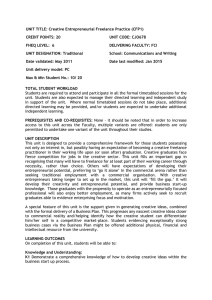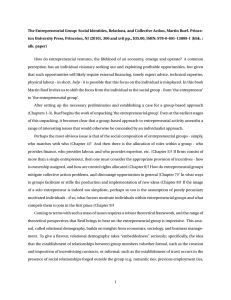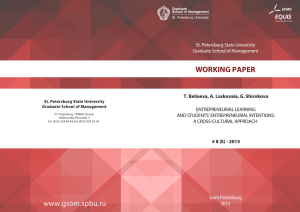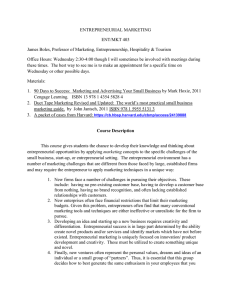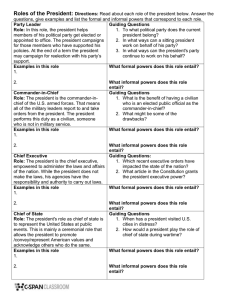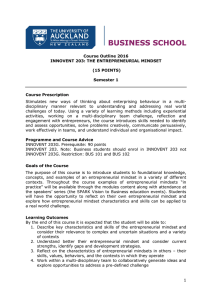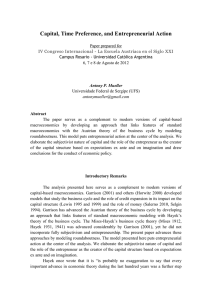Chapter 4: Reading Study Guide
advertisement
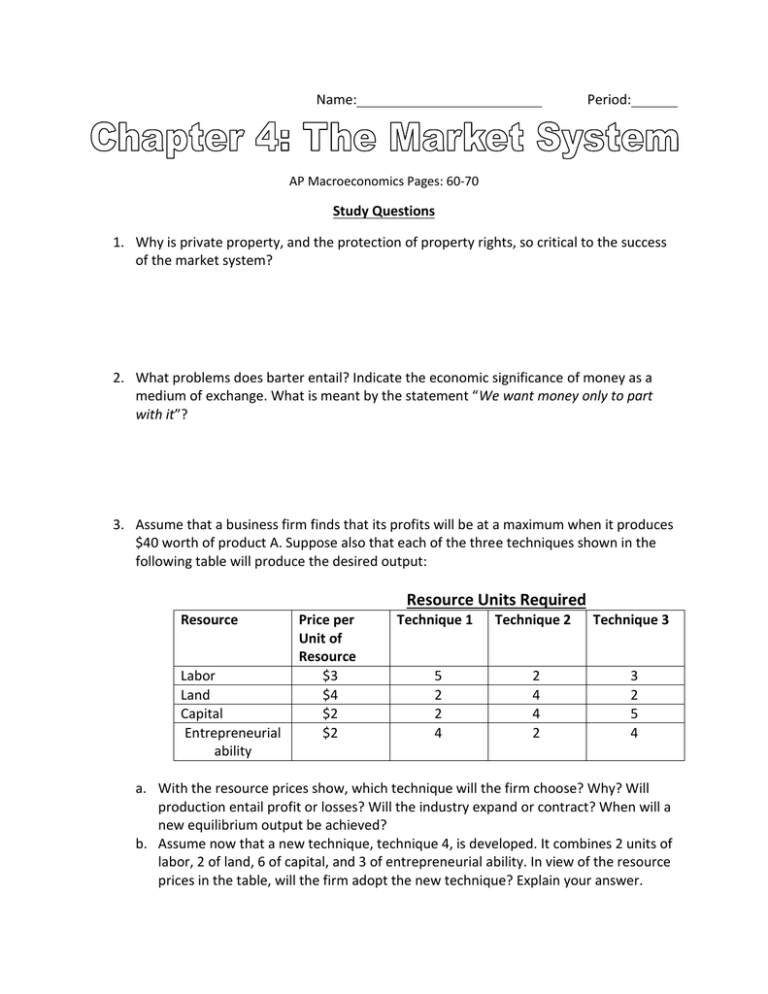
Name: Period: AP Macroeconomics Pages: 60-70 Study Questions 1. Why is private property, and the protection of property rights, so critical to the success of the market system? 2. What problems does barter entail? Indicate the economic significance of money as a medium of exchange. What is meant by the statement “We want money only to part with it”? 3. Assume that a business firm finds that its profits will be at a maximum when it produces $40 worth of product A. Suppose also that each of the three techniques shown in the following table will produce the desired output: Resource Units Required Resource Labor Land Capital Entrepreneurial ability Price per Unit of Resource $3 $4 $2 $2 Technique 1 Technique 2 Technique 3 5 2 2 4 2 4 4 2 3 2 5 4 a. With the resource prices show, which technique will the firm choose? Why? Will production entail profit or losses? Will the industry expand or contract? When will a new equilibrium output be achieved? b. Assume now that a new technique, technique 4, is developed. It combines 2 units of labor, 2 of land, 6 of capital, and 3 of entrepreneurial ability. In view of the resource prices in the table, will the firm adopt the new technique? Explain your answer. c. Suppose that an increase in the labor supply causes the price of labor to fall to $1.50 per unit, all other resource prices remaining unchanged. Which technique will the producer now choose? Explain. d. “The market system causes the economy to conserve most in the use of resources that are scarcest relative to the demand for them have the highest prices. As a result, producers use these resources as sparingly as is possible.” Evaluate this statement. Does your answer to part c, above, bear out this contention? Explain. 4. In a single sentence, describe the meaning of the phrase “invisible hand”. 5. What explains why millions of economic resources tend to get arranged logically and productively rather than haphazardly and unproductively? Vocabulary Freedom of enterprise: Freedom of choice: Roundabout production: Division of labor: Medium of exchange: Economic Costs: Normal profit: Economic profit: Consumer sovereignty: Dollar votes: Derived demand: Guiding function of prices: Creative destruction:
